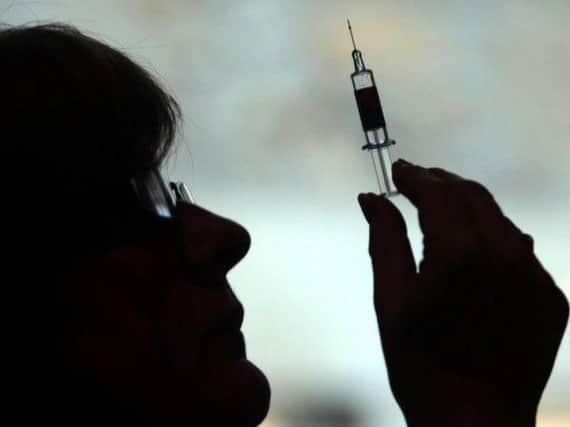Derry Trades Union Council chair Niall McCarroll calls for vaccines for homeless and supported living sector


DTUC chair Niall McCarroll says workers employed in this sector need to be protected in the same way as social workers, health visitors and midwives.
"Community sector workers are at risk because many of our clients can’t wear masks because of their mental illnesses, especially with symptoms such as paranoia, anxiety, etc., and also because some aren’t capable of adhering to social distancing guidelines," said Mr. McCarroll.
Advertisement
Hide AdAdvertisement
Hide AdThe Derry trade unionist who works in the supported living sector said that colleagues are concerned about getting sick amid the ongoing surge.
"Firstly, as with NHS/Trust facilities we are looking after the most vulnerable people in society. We need to be able to go to work to look after vulnerable people and we need to go to work because poor terms and conditions means we can't afford to be off sick.
"Is it the case that if a person's care and support is provided by outsourced public contracts then they and the staff working there are less valued than those in NHS/Trust facilities?" he asked.
Advertisement
Hide AdAdvertisement
Hide AdMr. McCarroll said that as more vaccines come online workers providing vital services for the homeless need to be prioritised for inoculation.
"In the homeless and addiction services we are dealing with the most marginalised people in society. Health is poor due to their lifestyle, addictions and chronic neglect of working class communities.
"As with other care and support staff, who will get the vaccine, many staff have family with underlying health issues which make them susceptible to having major problems if they get COVID. And the fact that we are frontline staff we are more likely to get COVID by being at work and not having the luxury of working from home," he said.
Many people relying on supported living services - such as those living with learning disabilities - have little insight into COVID-19 and how important it is to stick to guidelines, said Mr. McCarroll.
Advertisement
Hide AdAdvertisement
Hide AdThey sometimes do not understand or forget about social distancing or wearing masks, he added.
"Workers are at risk of transmitting it to them or vice versa. Staff provide all aspects of personal care which involves close contact, dealing with periods and self examinations. Staff offer 24 hour support for people with learning disabilities and have more underlying health conditions.
"Down Syndrome tenants live in schemes and come under clinically extremely vulnerable guidelines. Tenants mix more with others - daycare, work placements, day opportunities - so staff are at risk of catching COVID from them and that in turn has a ripple effect in that there will be less people to care or support them," he said.
Equally, tenants in homeless accommodation may be more likely to engage in more risky behaviours which can expose them to the virus.
Advertisement
Hide AdAdvertisement
Hide Ad"Homeless hostels, temporary B&B accommodation, floating support workers and supported living projects present significant risks with service user groups engaging in high risk lifestyles and behaviours. Many clients do not follow PHA guidelines around COVID-19 putting other service users and frontline staff at risk of contracted COVID-19.
"The vaccine would give staff who have worked tirelessly since March protection and peace of mind in the absence of them not being part of the testing programme, increased defence for our tenants, reducing liability and possibility of staff members bringing COVID on scheme.
"For the health and well being of our members in the community sector, we have a duty of care to protect staff, vaccinating as many staff as possible to help reduce the drain on the health service," said the DTUC chair.